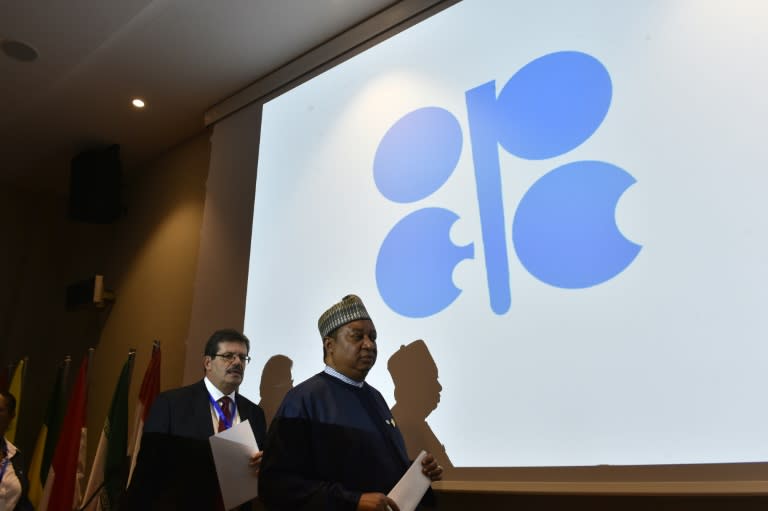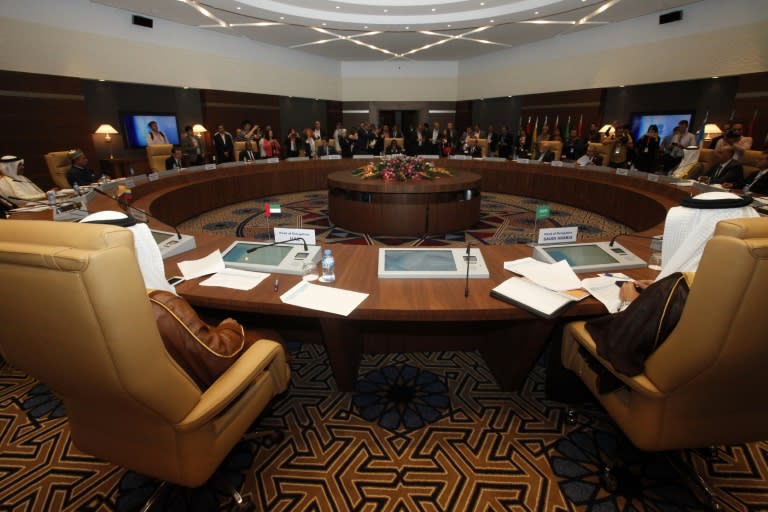Oil prices rise despite doubts over OPEC output deal
Oil prices added Thursday to steep gains fuelled by OPEC's deal to cut crude output, but analysts doubted the cartel's ability to seriously tackle a supply glut. Following a meeting that included Russia, the Organization of the Petroleum Exporting Countries stunned markets Wednesday by saying it planned to trim total production by some 750,000 barrels per day. This followed talks in Algiers on how the cartel could prop up prices that have plunged from $100 in mid-2014 to below $30 at the start of 2016, mainly owing to excess supplies. Exact details of the deal remain to be agreed and analysts said markets will now wait to see how other major producers react. Earlier this year Russia had expressed its support for an output freeze. But on Thursday Russian Energy Minister Alexander Novak said that his country intends to keep oil production at current levels. The cartel's announcement of a first official reduction in eight years sent crude prices surging six percent Wednesday, while energy firms across the globe have seen their share prices soar. At the end of six hours of negotiations and weeks of horse trading, OPEC said it would cut production to 32.5-33 million barrels per day from around 33.5 million in August. But the market gains moderated early Thursday. The US benchmark, West Texas Intermediate for delivery in November, added 78 cents to settle at $47.83 a barrel. In London, Brent North Sea crude for November rose 55 cents to $49.24 a barrel. - Iran exemption - Yet analysts were dubious that a deal would have much real impact on the supply-demand equation in the market. "We are confident that OPEC countries will not stick to the agreement," commented Commerzbank analyst Carsten Fritsch. Even if they do, he said, exemptions from cuts granted to Iran, Nigeria and Libya mean that "the problem of surplus will not be solved if these countries take full advantage of their capacities again". Wednesday's deal came after OPEC kingpin Saudi Arabia allowed bitter rival Iran to be exempted from the cutbacks, as the Islamic Republic recovers from years of sanctions on its oil exports. "It is Saudi Arabia who has clearly blinked first, allowing Iran, its main rival, to ramp up production," said Jeffrey Halley, senior market analyst at Oanda trading group. "These two don't see eye-to-eye on anything so this is a huge concession by Saudi Arabia to 'lubricate' the process," he told AFP. The Paris-based International Energy Agency called the agreement "an important development for the oil market", but it also cautioned that it was too early to tell how it would actually affect market balances. "The IEA continues to believe that oil prices should be determined by market fundamentals," it said. French bank Societe Generale said in a note to clients that the deal gave a stronger boost to oil-sensitive stocks and currencies than it did to crude oil itself. "Time will tell whether oil prices will trend higher (after a knee-jerk rally), and the market will first wait to see how the cuts are divvied up between members," to be decided at the November OPEC meeting. Another question is how the new move will affect US output. The Saudi strategy of flooding the market was directed particularly at US high-cost shale producers, with Riyadh hoping to drive them out of business. The impact was clear: US oil production fell by 12.5 percent, or 1.2 million barrels a day. But the plunge in oil revenues hurt everyone. It left Saudi Arabia with a record deficit, prompting sharp cuts to spending and salaries. "Saudi Arabia have perhaps reassessed their dumping oil strategy to put US shale out of business as the pressure on their budgets has clearly reached a tipping point as well," Halley said.




